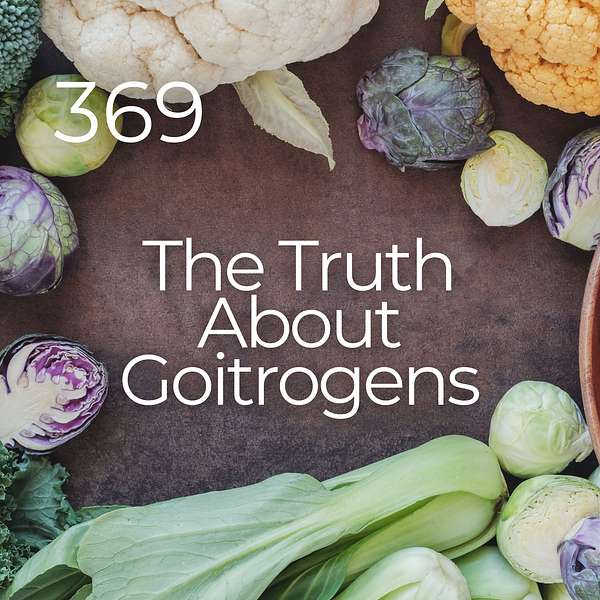
Alter Your Health
Alter Your Health
#369 - The Truth About Goitrogens
Continuing our discussion around “anti-nutrient” compounds in plants takes us to goitrogens.
This term refers to substances that can interfere with iodine uptake by the thyroid and lead to decreased thyroid function, thereby leading to the formation of a “goiter.” The classic goitrogen is actually the deficiency of iodine, an essential mineral for thyroid activity. This, of course led to the iodination of table salt, which ensures proper iodine intake and thyroid function for people who may otherwise by iodine deficient. Note that we don’t advocate for consuming iodized table salt, or any added salt to the diet generally. Enough iodine is present in all fresh fruits and veggies, but eating sea vegetables like dulse or nori from time to time is a good iodine insurance policy.
The goitrogens that we are talking about today are mainly the glucosinolate compounds found highest in brassica or cruciferous vegetables. One specific compound has been singled out and named goitrin (poor guy) due to the alleged goitrogenic effects. Like the other “anti nutrients” we’ve covered (lectins, oxalates, and phytates), glucosinolates are naturally occurring phytonutrients that actually have wonderful health benefits, not determinants!
In todays episode we’ll look in to the science that supports the claims behind these so called goitrogenic nutrients. We’ll also look at some of the science showing the health benefits of the same compounds in question!
I find it ironic that one of the most famous and widely occurring goitrogenic glucosinolate is glucoraphanin which is actually the precursor to the beloved isothyanate compound, sluforophane! Sorry for all of the biochemistry jargon… The point is just that many of the same people fear mongering about anti nutrients like goitrogens also praise the detoxification and health benefits of sulforophane. (And if you want to learn more about sulforophane, you can tune into Episode #364.)
Episode Highlights
- Cell and animal model studies have shown how glucosinolate compounds (goitrin) may potentially interfere with thyroids uptake of iodine, thereby decreasing thyroid function
- Studies have also shown that many other common compounds such as resveratrol and other flavonoids may also have this sort of “goitrogenic effect”
- There is a huge range when it comes to the amount of glucosinolates in cruciferous veggies - very much dependent upon soil quality and growing conditions
- Cooking/steaming veggies vastly lowers glucosinolate content, including glucoraphanin which has clear health benefits
- Studies seem to show that in general, consumption of glucosinolate-rich foods like cruciferous vegetables is protective against cancer and other disease
- Nutrients exist in a complex matrix and compounds studied in reductionistic isolation may show data that is irrelevant and unrepresentative to real world circumstances
Links to more good stuff
- GREEN FORCE! - www.visfoods.co (use the code AlterYourHealth for $10 off)
- Eat More, Weigh Less Program - www.alter.health/eat-more-weigh-less
- 1-on-1 Nutritional Analysis Package - www.alter.health/nutritional-analysis
- Get the Alter Health weekly WFPB Meal Guides: www.alter.health/meal-guides
- Thrive on Plants Program: www.alter.health/thrive-on-plants
- TMS Free Life Program - www.alter.health/tms-free-life